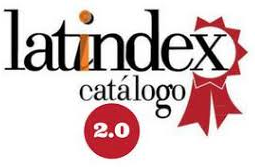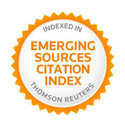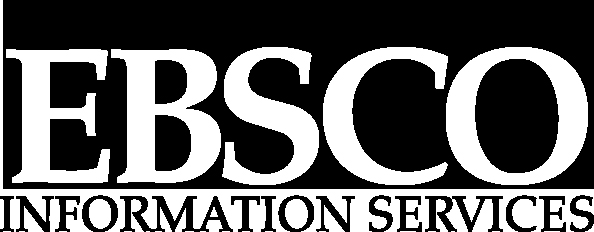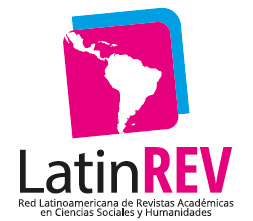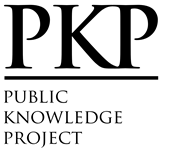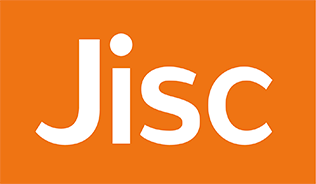The intricate relationship of the media business and economic development
Abstract
Growth theories are among the cornerstones of economic theory, dating back to the field’s origins. There have been many explanations for growth (or lack of thereof), yet the role of the media in economic development has only begun to receive increasing attention over the last twenty years. Our contribution hopes to shed light on the intricate relationship between the media business (and its specific sub-segments) and general economic development (and possible intervening variables). Based on media data provided by an international consultancy, economic indicators from the World Bank, and several sources mapping national “media systems” we will outline the diversity of the world’s 30 leading countries (in media terms) and expose the correlations between them. Additionally, annual data from the 2001-2010 period will allow for analyses of time series and possible causal relationships. Analyses show a strong correlation between media industries’ yearly revenue and GDP. Correlations shifted by time intervals also point beyond annual effects. Media’s long-term growth and their share of overall economic value creation, along with compound economic growth rates and the general state of development, are all strongly linked to each other as well as to media systems’ variables, like freedom of the press. Nevertheless, despite the overall dependency of media industries’ growth on the growth of GDP, less developed countries show stronger rates of media growth than might be expected based on GDP growth. Furthermore, outperformance in media markets’ growth appears to stimulate general economic development, which suggests a process of co-evolution.
Downloads
References
Alesina, A. & La Ferrara, E. (2005). Ethnic diversity and economic performance. Journal of Economic Literature, 43, p. 762–800.
Anam, M. (2002). The media and development in Bangladesh (p. 267–274). In: World Bank (ed.). The right to tell: the role of mass media in economic development. Herndon, VA: World Bank Publications.
Becker, L. B.; Vlad, T. & Nusser, N (2007). An evaluation of press freedom indicators. International Communication Gazette, 69, p. 5. Retrieved from: http://gaz.sagepub.com/content/69/1/5 (accessed 30.10.2014)
Besley, T. & Burgess, R. (2001). Political agency, government responsiveness, and the role of media. European Economic Review, 45, p. 639-640.
Besley, T.; Burgess, R. & Prat, A. (2002). Mass media and political accountability (p. 45-60). In: World Bank (ed.). The right to tell: the role of mass media in economic development. Herndon, VA: World Bank Publications.
Blum, R. (2005). Bausteine zu einer Theorie der Mediensysteme. In: Medienwissenschaften Schweiz, 2, p. 5-11.
Commission on the Measurement of Economic Performance and Social Progress (2009). Report by the Commission on the Measurement of Economic Performance and Social Progress. Retrieved from: http://www.stiglitz-sen-fitoussi.fr/documents/rapport_anglais.pdf (accessed 30.01.2014)
Coyne, C. J. & Leeson, P. T. (2004). Read all about it! Understanding the role of media in economic development. Kyklos, 57 (1), p. 21-44.
Coyne, C. J. & Leeson, P. T. (2009). Media, development, and institutional change. Cheltenham: Edward Elgar.
Djankov, S. et al. (2002). Media: ownership and prosperity (p. 141-166). In: World Bank (ed.). The right to tell: the role of mass media in economic development. Herndon, VA: World Bank Publications.
Djankov, S. et al. (2003). Who owns the media? Journal of Law and Economics, 46 (2), p. 341.
Dunning, J. (1993). Multinational enterprises and the global economy. London: Addison Wesley.
Dyck, A. & Zingales, L. (2002). The corporate governance role of the media (p. 107-140). In: World Bank (ed.): The right to tell: the role of mass media in economic development. Herndon, VA: World Bank Publications.
Easterly, W. (2001). The elusive quest for growth. Massachusetts: MIT Press.
European Commission (2009). GDP and beyond: measuring progress in a changing world. Communication from the Commission to the Council and the European Parliament. COM (2009) 433 final. Brussels: European Commission. Retrieved from: http://www.beyond-gdp.eu/EUroadmap.html (accessed30.10.2014)
European Communities & OECD (2006). Eurostat-OECD methodological manual on purchasing power parities. Paris: OECD. Retrieved from: http://www.oecd.org/dataoecd/59/10/37984252.pdf (accessed 30.10.2014)
Florida, R. (2002). The rise of the creative class: and how it’s transforming work, leisure, community and everyday life. New York: Basic Books.
Freedom House (2013). Freedom of the press ratings. Retrieved from: http://www.freedomhouse.org/ report-types/freedom-press All years from 2001 to 2010 available (accessed 03.10.2014)
Gallup, J. L.; Sachs, J. & Mellinger, A. (1998). Geography and economic development, presented at the Annual Bank Conference on Development Economics, World Bank. Retrieved from: http://www. cid.harvard.edu/cidglobal/economic.htm (accessed 03.10.2014)
Gould, D. M. & Gruben, W. C. (1996). The role of intellectual property rights in economic growth. Journal of Development Economics, 48, p. 323-350.
Gross, P. (1996). Mass media in revolution and national development: the Romanian laboratory. Iowa: Iowa State University Press.
Hallin, D. C. & Mancini, P. (2005). Comparing media systems (p. 215-233). In: Curren, J. & Gurevitch, M. (ed.). Mass media and society. London: Hodder Arnold.
Hawksworth, J.; Jones, N. C. & Ussher, K. (2011). Good growth: a Demos and PwC report on economic well-being. London: Demos. Retrieved from: http://www.pwc.co.uk/government-public-sector/publications/good-growth-index-how-gov-can-kick-start.jhtml (accessed 30.10.2014)
Islam, R. (2002). Into the looking glass: what media tell and why: an overview (p. 1-25). In: World Bank (ed.). The right to tell: the role of mass media in economic development. Herndon, VA: World Bank Publications.
Kilman, L. (2006). The role of the press in sustainable economic development. a presentation paper for the UNESCO World Press Freedom Day conference Colombo, Sri Lanka, 1-4 May, 2006. Retrieved from: http://www.unesco.org/new/fileadmin/MULTIMEDIA/HQ/CI/WPFD2009/pdf/ wpfd2006_WAN+Kilman.doc (accessed 24.10.2014)
Knack, S. & Keefer, P. (1995). Institutions and economic performance: cross-country test using alternative institutional measures. Economics and Politics, 7, p. 207–227.
Kolo, C. & Müller, R. (2012). Economic value creation and media industries: a quantitative comparative study across media systems and national economies (p. 47-64). In: Kolo, C.; Döbler, T. & Rademacher, L (ed.). Wertschöpfung durch Medien im Wandel. Baden- Baden: Nomos.
Lal, D. (1998). Unintended consequences: the impact of factor endowments, culture, and politics on longrun economic performance. Massachusetts: MIT Press.
Lambino II, A.; Tebay, A. & Buzby, S. (2006). A monitoring and evaluation toolkit for media development: what do available indicators and integrative approaches have to offer? (p. 81-88). In: Media matters: perspectives on advancing media and development from the Global Forum for Media Development. London: Internews Europe; Brussels: Global Forum for Media Development.
Lavine, J. M. & Wackman, D. B. (1988). Managing media organisations: effective leadership of the media. London: Longman.
Lent, J. A. (ed.) (1980). Case studies of mass media in the Third World. Virginia: Department of Anthropology, College of William and Mary.
Lewis, W. A. (1955). The theory of economic growth. London: Unwin Hyman.
Mansell, R. & Wehn, U. (1998). Knowledge societies: information technology for sustainable development. Oxford: Oxford University Press.
McAnany, E. G. (1980). Communications in the rural Third World: the role of information in development. New York: Praeger.
Melody, W. H. (1999). Human capital in information economies. New Media & Society, 1 (1), p. 39-47.
Norris, P. & Zinnbauer, D. (2002). Giving voice to the voiceless: good governance, human development & mass communications. New York: UNDP Human Development Report Office. Retrieved from: http://hdr.undp.org/sites/default/files/norris-zinnbauer_2002.pdf (accessed 30.10.2014)
O’Neil, P. H. (ed.) (1997). Post-Communism and the media in Eastern Europe. London: Frank Cass.
Oetzel, J. M.; Bettis, R. A. & Zenner, M. (2001). Country risk measures: how risky are they? Journal of World Business, 36, p. 128-145.
Owen, B. M. (2002). Media as industry: economic foundations of mass communications (p. 167-186).
In: World Bank (ed.). The right to tell: the role of mass media in economic development. Herndon, VA: World Bank Publications.
Paletz, D. L.; Jakubowicz, K. & Novosel, P. (ed.) (1995). Glasnost and after: media and change in Central and Eastern Europe. New Jersey: Hampton Press.
Potts, J. (2009). Do developing economies require creative industries? Some old theory about new China. Chinese Journal of Communication, 2 (1), p. 92-108.
PwC (2013). Global entertainment and media outlook 2013-2017. 14th edition [earlier editions with data from 2001 on analogous; compiled for this study by courtesy of PWC]. New York: PwC. Retrieved from: http://www.pwc.com/gx/en/global-entertainment-media-outlook
Reporters sans Frontières (2013). World press freedom index. Retrieved from: http://en.rsf.org/pressfreedom-index-2013,1054.html All years from 2001 to 2010 available (accessed 20.10.2014)
Sen, A. (1984). Poverty and famines. Oxford: Oxford University Press.
Siebert, F. S.; Peterson, T. & Schramm, W. (1956 [1963]). Four theories of the press: the authoritarian, libertarian, social responsibility and Soviet communist concepts of what the press should be and do. Illinois: University of Illinois Press.
Simmons, H. (1948). Economic policy of a free society. Chicago: University of Chicago Press.
Smith, A. (1776 [1991]). The wealth of nations. New York: Prometheus Books.
Spitzer, R. J. (ed.) (1993). Media and public policy. New York: Praeger.
Stigler, G. J. (1961). The economics of information. Journal of Political Economy, 69, p. 213 225.
Stiglitz, J. (2002). Transparency in government (p. 27-44). In: World Bank (ed.). The right to tell: the role of mass media in economic development. Herndon, VA: World Bank Publications.
Thomaß, B. (2007). Mediensysteme im internationalen Vergleich. Konstanz: UTB.
UNDP (2013). International human development indicators. Retrieved from: http://hdr.undp.org/en/ statistics/ All years from 2001 to 2010 available (accessed 20.10. 2014)
UNESCO (2008). Media development indicators: a framework for assessing media development.
Reference number: CI/COM/2008/PI/3 Paris: United Nations Educational, Scientific and Cultural Organization, Communication and Information Sector.
van der Wurff, R.; Bakker, P. & Picard, R. G. (2008). Economic growth and advertising expenditures in different media in different countries. Journal of Media Economics, 21, p. 28-52.
van Kranenburg, H. & Hogenbirk, A. (2005). Multimedia, entertainment, and business software copyright piracy: a cross-national study. Journal of Media Economics, 18 (2), p. 109-129.
Whitehouse, M. (2006). Measuring change in media systems: the media sustainability index (p. 76-80). In: Media matters: perspectives on advancing media and development from the Global Forum for Media Development. London: Internews Europe; Brussels: Global Forum for Media Development.
Wiio, O. A. (1983). The mass media role in the Western world (p. 85-94). In: Martin, L. J. & Chaudhary, A. G. (ed.). Comparative mass media systems. White Plains: Longman.
World Bank (ed.) (2013). World Bank indicators. Retrieved from: http://data.worldbank.org/indicator All years from 2001 to 2010 available (accessed 02.10.2014)
World Bank (ed.) (2002a). The right to tell: the role of mass media in economic development. Herndon, VA: World Bank Publications. World Bank (ed.) (2002b). The World Development report 2002. Herndon, VA: World Bank Publications. Retrieved from: https://openknowledge.worldbank.org/handle/10986/5984 (accessed 10.10.2014).
Copyright (c) 2015 Castulus Kolo

This work is licensed under a Creative Commons Attribution-NonCommercial 4.0 International License.
The authors retain the copyright and guarantee the journal the right to be the first publication of the work. In case that a translation of the article already published in Austral Comunicación can be published in another journal, it is requested to record the original publication in the translated version.
The license used is CC BY-NC-SA, which allows sharing (copying and redistributing the material in any medium and format) and adapting (remixing, transforming and building on the material) under the following terms: attribution (acknowledge authorship) and non-commercial (the material cannot be used for commercial purposes). Update: February 1, 2022.
Austral Comunicación allows the author (s) to retain the publication rights without restrictions.








